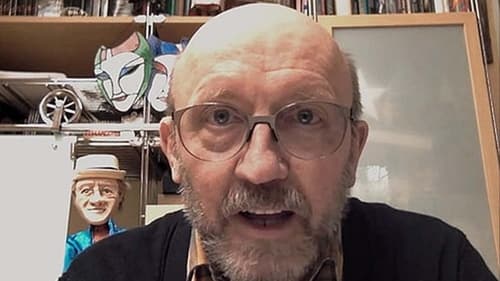
Self
The film was inspired by one of the most important documentaries shot by Krzysztof Kieślowski, Talking Heads (1980). The director asked his interlocutors seemingly simple questions, such as “Who are you?” and “What do you want?”.

Cinematography
Full of archival flavors, the story of an aristocrat cursed by his family, a man of many faces and talents living in turbulent times. Who was August Zamoyski? A lover of female beauty, an athlete, a sculptor, and a citizen of the world who draws full attention from life?
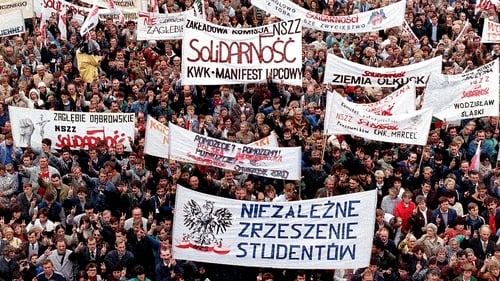
Self - Cameraman
Gdańsk, Poland, September 1980. Lech Wałęsa and other Lenin shipyard workers found Solidarność (Solidarity), the first independent trade union behind the Iron Curtain. The long and hard battle to bring down communist dictatorship has begun.
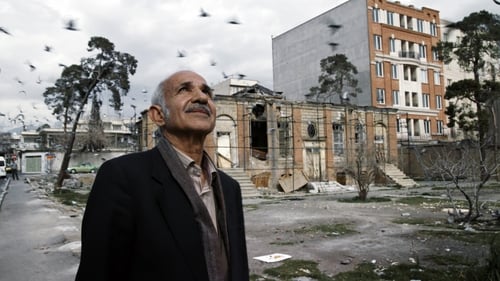
Himself
In 1979, a revolution in Iran. In 1980, a revolution in Poland. The fall of the Shah, the “King of Kings,” in Iran. Mass strikes and the foundation of Solidarność (Solidarity) in Poland. What was in the minds of the young women and men who fomented revolution in their own country? What did they think when their revolution was quelled, or – as in Iran – an authoritarian regime was instituted under the name of an “Islamic Republic”?
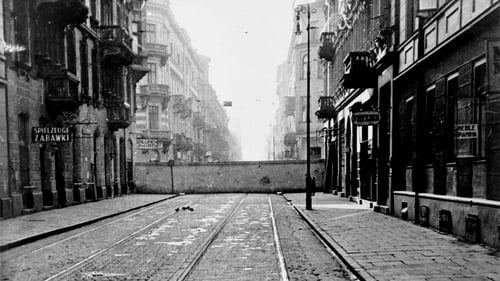
Director of Photography
La historia del gueto de Varsovia (1940-43) vista desde ambos lados del muro, su legado y su recuerdo: nueva luz sobre una época trágica de división, destrucción y asesinatos en masa gracias al testimonio de supervivientes y el descubrimiento de una película de diez minutos filmada por el cineasta amateur polaco Alfons Ziółkowski en 1941.

Director of Photography

Cinematography
30 thousand Hasidim journey to Uman in Ukraine to celebrate the Jewish New Year at the gravesite of Rebbe Nachmann. A Ukrainian far-right group erects a cross at the site of Hasidic prayers and builds a monument to Cossacks who slaughtered thousands of Jews and Poles in 1768.

Cinematography
Don’t Breathe is a dark comedy set in Georgia that follows the tribulations of a middle-aged man, Levan, who is suddenly led to question his existence because of a routine medical examination. It sends him into a downward spiral of paranoia and doubt as he fumbles his way through the theatre of the absurd that we call life. Using humour and a playful tone, the film examines the fragility of human nature, when our bearings get lost and our imagination takes over, highlighting our common fears, doubts, hopes and resilience.

Director
Agnieszha Holland takes Jacek Petrycki on a journey to the places of her youth; she tells him stories of experiences of the past. It is a dialogue of a famous director with the camera, behind which, there is her true friend.

Director of Photography

Director of Photography

Director of Photography
Operation Danube was the cover name for the invasion of Czechoslovakia by Warsaw Pact armies in August 1968. The fleet of Polish tanks which arrive to liberate their neighbor, ostensibly threatened by a counter-revolution, includes the old tank nicknamed Ladybird, which is the last to leave the barracks.

Director of Photography

Cinematography
'Kites' tells the inspiring story of Kabul's budding young video producers. Through a clever combination of the students' video and their mentor Jacek Szaranski's artful camera work, we take a look at the use of video and high tech in a world more commonly associated with a backward and warmongering existence. A world where under the Taliban it was forbidden to show pictures of human beings, let alone for young women to operate video cameras. 'Kites' tells the story of the potential of young Afghans and their yearning for modernity.

Director of Photography

Cinematography
Piotr Tymochowicz, media advisor to some of Poland's top politicians, claims that anybody can be molded into a charismatic leader. To prove it he's looking for a greenhorn that can be turned into a candidate. A call is put out for would-be participants, and hundreds apply. A small group is selected and under go training. Polish master Marcel Lozinksi followed Tymochowicz and this project for three years, and this beautifully shot and edited work paints a compelling portrait of cynical (and quite familiar) demagogy and populism in action.

Director of Photography
Un misterioso solitario (Karel Roden) llega a un pequeño pueblo con el cuerpo de un forajido buscado (Val Kilmer es el cadáver). Pero después de apostar su recompensa en un juego de cartas con el sheriff (Boguslaw Linda), debe idear un plan para recuperar al hombre muerto. Katarzyna Figura coprotagoniza como una dura camarera en el ingenioso y sangriento western del escritor y director polaco Piotr Uklanski, que parodia y rinde homenaje al género spaghetti western.
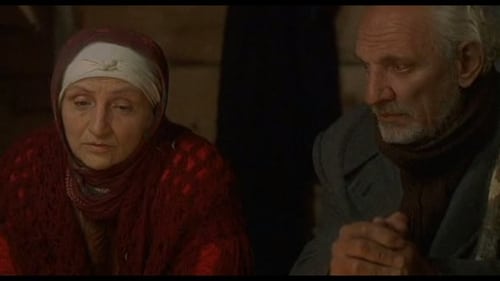
Cinematography
A member of a Greek family in Turkey is forced to immigrate from Trabzon to Mersin in her youth. However, events cause her to face her own past.

Director of Photography
The story of a man coming to terms with the sins and secrets of his notorious brother and, in the process, exploring the legacy of violence in his own family.
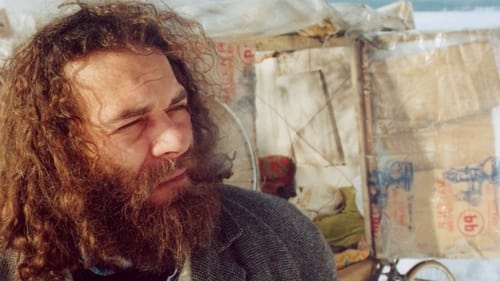
Director of Photography

Director of Photography
Six teens who were traumatized by child abuse early in their lives come together to form a gang that ultimately plots revenge against the ones who committed the crimes against them. The gang leader is the only one who has something of a normal life, living at a hotel where he is an apprentice and friends with the managers who are like surrogate parents to him. However, when the others start to attack their tormentors, Smith is drawn into the conflagaration also.

Cinematography
The aftermath of the Rwandan genocide: A student theatre troupe tours Rwanda with a comedy about the genocide, a gang of killers gets rough justice at the local genocide court, and a prosecutor investigates a priest for the murder of five Tutsi children. Meanwhile, in neighbouring Tanzania, two of the genocide's leaders face the United Nations tribunal in snappy suits, defended by a panoply of French lawyers.

Director of Photography
A mockumentary in which during a visit to the NATO headquarters in Brussels, a secret agent discovers the Pact authorities expect the Polish army to change its parade step.

Cinematography
Polish filmmaker Marcel Łoziński revisits the farmer/intellectual Urszula Flis, subjects of his 1978 film 'A visit'. Łoziński observes the changes that have occurred over the intervening 23 years and again persuades this sensitive, secluded woman to talk through her thoughts, fears and feelings. Through this, the morality of the documentary portrait itself is called into question.

Camera Operator
Deep in the Ugandan bush, an Italian nun tries to get back 30 of her convent school girls who have been abducted for sex by an army of children led by a mystic claiming to be the son of God.

Cinematography
As Russian tanks advance over the plains of Chechnya, a group of Russian mothers search for the sons, conscripts from the ill-fated 131st Brigade, they believe have been captured by the Chechens. They place their trust in Colonel Kosov, a Russian liaison officer responsible for organising prisoner exchanges across the front line.

Camera Operator
This documentary follows the election campaigns of a journalist, a local crime boss, a formerly exiled oligarch, and a local access TV host as they compete for a spot in the Moscow Central Constituency, in Russia's first free elections since 1917

Cinematography
This movie shows the simplest difference between Europe and former Soviet Union. It is the eponymous 89 mm - Russian train tracks are 89 mm wider than tracks in European countries. And because of this fact, it is not easy to go through the Soviet border by train in Brest as the passengers in the film do.

Cinematography
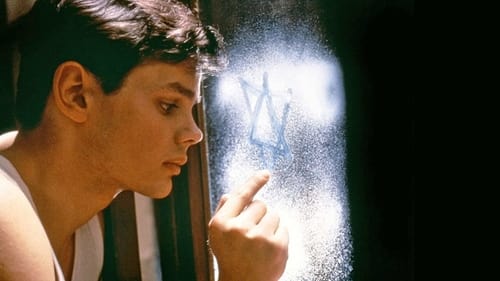
Director of Photography
Al estallar la Segunda Guerra Mundial, Solomon Perel, un joven judío polaco, fue internado en un orfanato soviético. Más tarde fue reclutado por los alemanes, que desconocían su identidad, y se convirtió, involuntariamente, en un héroe del ejército nazi.

Director of Photography
Marcel Łoziński tells the story of the crime committed by the NKVD in Katyn in 1940. He interweaves accounts of witnesses and survivors with images from the pilgrimage of members of Katyn Families to the place of murder, death and nameless burial of their loved ones.
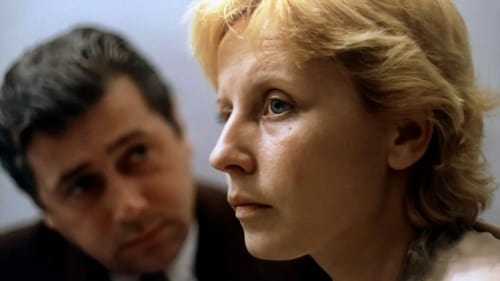
Director of Photography
Durísimo retrato de la opresión política. Krystyna Janda encarna a una actriz de cabaret que mantiene relaciones con altos oficiales militares. Esos encuentros la hacen sospechosa y la policía secreta la encarcela. Mediante una interrogación brutal, se convencen de que el breve encuentro entre la actriz y un comandante del ejército ha fomentado un complot contra el gobierno. A lo largo de la película se muestran a los extremos que llegan los interrogadores para extraer lo que creen que es la verdad... Prohibida inmediatamente tras su estreno en Polonia, la película fue lanzada internacionalmente en 1990 en el Festival de Cannes, donde Janda logró el premio a la mejor actriz. (FILMAFFINITY)

Director of Photography
At the end of the 1980s, high school students watch fragments of a congress of the Union of Polish Artists and Designers that took place in 1949. During the congress, socialist realism and pictures representing the imposed aesthetics were proclaimed. Viewers will learn about the attitude of young people to the communist system and the art of those times.

Cinematography
On July 4th, 1946, the crowd in Kielce, Poland, slaughtered forty-two Jews and wounded many others. Forty years later, in 1987, Marcel Łoziński visited those places and met some witnesses of the carnage.
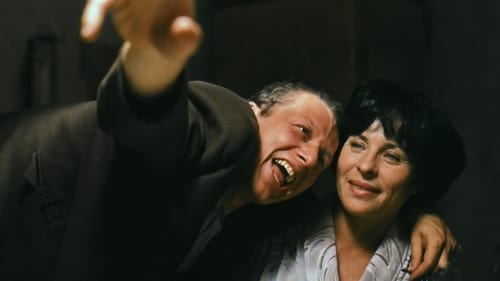
Cinematography
Irena, a postal delivery worker, is struggling with inadequate housing, a drunk neighbor who wants to take her place, and a heartless boss, knowing that the whole day at work, she is leaving her young son. But the worst is the loneliness, exacerbated by her single mother status. She meets a crippled pensioner Jacek, who appears to be the key to her happiness, but tragedy continues to strike.

Cinematography
A street poll about contemporary youth. The answers are engineered to show the manipulation of propaganda and television.
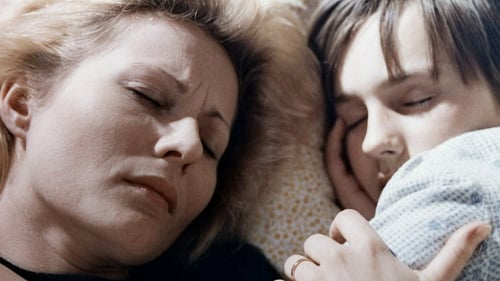
Director of Photography
Drama ambientado en Polonia en 1982, en plena Guerra Fría. El general Wojciech Jaruzelski, jefe supremo del partido comunista, gobierna el país bajo la ley marcial, ejerciendo una especial represión contra el ilegal sindicato obrero Solidaridad, creado en los astilleros de Gdansk.

Director of Photography
A holiday training camp for young married couples who belong to the Polish Socialist Youth Union (ZSMP) begins at the campsite. From the commander's welcome speech, they learn that a film crew will record camp life and training classes under the slogan "Model Family".

Director of Photography
A record of the unveiling of the monument to the victims of December '70 that took place in front of gate 2 of the Gdańsk Shipyard. Witnesses to the December events describe their experiences.
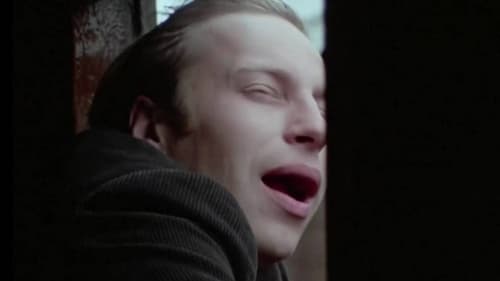
Director of Photography
A young man in his twenties leaves prison after a three-year sentence. He wants to start a new life in a place where he is not known and dreams only of a job, a wife and a family. He succeeds partially in fulfilling these dreams, but then runs into a conflict on a construction job between the corrupt boss and fellow workers secretly planning a strike. He becomes a pawn in one camp while remaining true to his ideals in the other. Filmed in 1976 and shelved for five years.

Cinematography
A Warsaw Pollena-Uroda cosmetics factory radio broadcaster is working on a programme investigating the workers' sense of factory ownership. The workers' answers come as a surprise, especially to the management. About the ruling and the ruled in communist Poland.

Director of Photography
People of different age, profession and social status answer two simple questions: who they are and what they want from life.
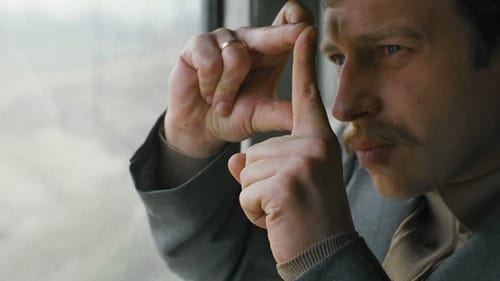
Director of Photography
Filip Mosz es un obrero que descubre gracias a una súper 8 los poderes de las grabaciones cinematográficas. Destinada a grabar los primeros pasos de su bebé, la cámara se convierte en herramienta de exploración y análisis del mundo: fábricas, obreros, ciudades, poblaciones, recuerdos, relaciones de poder y trabajo A medida que Filip encuentra nuevos temas, el mundo cambia. Esta actividad lo aleja de su mujer, empeora su relación con su jefe y provoca rupturas y malentendidos. Tanto su vida privada como su vida social se vuelven inestables como si el cine influyera en la realidad.
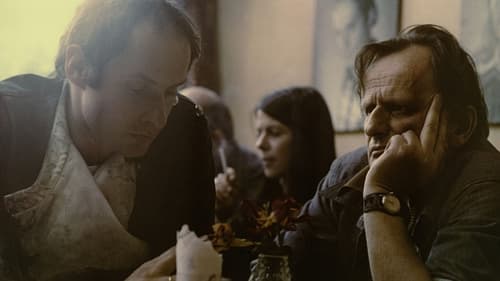
Director of Photography
The film is set in a small town near Warsaw, to which a young and coming director comes to produce a classic play (Wyspianski "Wyzwolenie") with a modern vein. Everyone in the production gets his usual stereotypical role, but the aging idol of the ensemble senses opportunity to give the performance of his life. For young director everything is already set. The leading man, however, is not giving up and is trying to restore the role according to his view. His wife listens to his fears, complaints and frustrations, while resigning herself to a fading career in a puppet theatre.

Director of Photography
The final oral exam in history and social studies at one of Warsaw's high schools. The film illustrates the theatre of social life in Soviet Poland where one says different things on the stage and another behind the scenes.

Cinematography
The house of a family of five is to be demolished due to the expansion of the city. The residents who are waiting to move are surprised by the progressive paralysis of their son.

Director of Photography
Young people with disabilities are provided with health care and vocational training. Is it enough to prepare them for their independent life? We get to know some charges of the Rehabilitation Center in Konstancin.

Director of Photography
A psychologist is asked about a scientific consultation with a girl who attempted suicide.
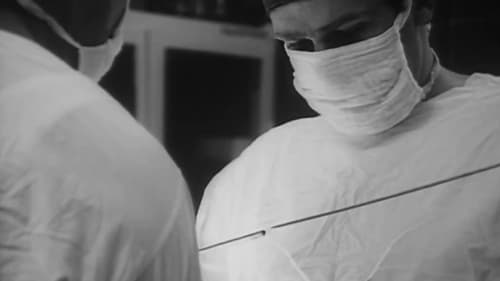
Director of Photography
24 hours in the life of a hospital from the point of view of the doctors and nurses.

Cinematography
“Stu” theatre rehearses “The Patients”, a play based on Mikhail Bulgakov’s “The Master and Margarita”.

Director of Photography
A communist party control committee interrogates a worker and party activist who is to be excluded from the party.

Director of Photography
Shortly before retiring, an old railway worker causes a serious accident which ultimately destroys his whole professional career.
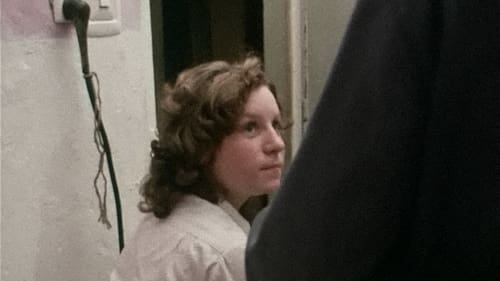
Director of Photography
After the doctor's refusal to perform abortion on a 17-year old girl, she and her boyfriend have to cope with the new situation. They both need to learn to take responsibility for their decisions, in spite of numerous hardships facing them.

Cinematography
A "Polityka" weekly journalist Marta Wesolowska and photo-reporter Erazm Ciolek visit Urszula Flis, who runs a country farm. A young woman living on her own, Flis is an untypical villager in that she is interested in culture, corresponds with writers, etc.

Cinematography
Brief portrait of a conformist.

Director of Photography
Patients with serious lung diseases, who are now in a sanatorium, tell us about their thoughts and feelings.

Director of Photography
A purge in the style of those of March 1968 is to take place at a party meeting. Instead, it turns into a psychodrama.

Cinematography
A commissioned film about the Lubin copper mine.

Cinematography
Commissioned film about the conditions of safety and hygiene in the Lubin copper mine.
















































